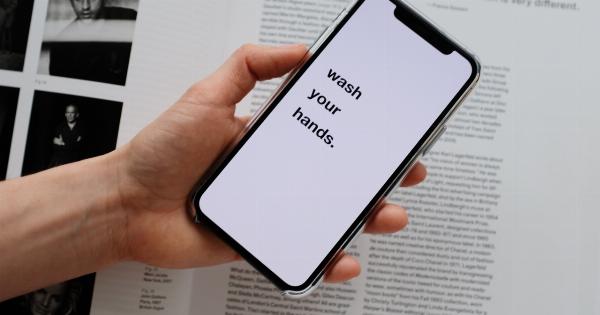Going on vacation is a time to relax, recharge, and forget about the stresses of work. However, in today’s hyperconnected world, it can be challenging to truly unplug from work while on vacation.
With emails, instant messaging, and work-related phone calls just a tap away, it’s vital to set boundaries and create a plan to fully disconnect from work during your time off. In this article, we will explore some effective strategies for unplugging from work on vacation.
1. Set Clear Expectations
Before you embark on your vacation, it’s essential to communicate your plans with your colleagues and supervisors. Let them know that you’ll be taking time off and won’t be available for work-related tasks during that period.
This will help manage expectations and reduce the likelihood of interruptions.
2. Delegate Responsibilities
Prior to your vacation, delegate your responsibilities to a trusted colleague or team member. This ensures that important tasks continue to be taken care of in your absence.
By empowering someone else to handle your workload, you can have peace of mind knowing that things are getting done while you relax.
3. Use an Out-of-Office Autoresponder
Set up an out-of-office autoresponder on your email and messaging platforms to inform anyone who tries to reach you that you’re on vacation and will respond to their message when you return.
This automated message not only manages expectations but also encourages people to find alternative solutions, reducing the need for immediate assistance from you.
4. Turn Off Work Notifications
Prior to your vacation, make sure to turn off all notifications related to work on your smartphone or other devices. This includes email alerts, work-related app notifications, and notifications from project management tools.
By keeping work notifications at bay, you can resist the temptation to constantly check your phone and focus on enjoying your vacation instead.
5. Establish Dedicated Work-Free Hours
Even if you plan to do some minimal work during your vacation, it’s important to set dedicated work-free hours.
Choose specific times of the day when you won’t engage with work-related activities, such as checking emails or making work-related calls. Use this time to fully relax, explore your destination, or spend time with loved ones.
6. Create a Digital Detox Plan
A digital detox plan involves intentionally disconnecting from all digital devices and platforms. Consider going offline completely for a day or two during your vacation.
This can be a refreshing experience, allowing you to fully immerse yourself in the present moment without any digital distractions.
7. Explore New Hobbies and Activities
Make use of your vacation time to explore new hobbies or engage in activities that help you disconnect from work mentally.
Engaging in activities like hiking, painting, or reading a book can provide a well-deserved break from work-related thoughts and allow you to recharge for when you return.
8. Leave Work Devices Behind
Consider leaving your work devices behind, such as your laptop or work phone, especially if you know you won’t need them during your vacation.
By removing the temptation to use them, you can ensure that work does not intrude on your vacation experience.
9. Inform Family and Friends
Let your family and friends know that you’re taking a work-free vacation and ask for their support. Explain to them the importance of disconnecting and ask them to refrain from discussing work-related matters during your time off.
Having their understanding and cooperation will make it easier for you to fully unplug.
10. Reflect on the Benefits of Unplugging
Remind yourself of the numerous benefits of unplugging from work during vacation. It allows you to recharge your batteries, reduce stress levels, improve mental well-being, and strengthen personal relationships.
Remembering these benefits will motivate you to stay committed to your work-free vacation plan.






























